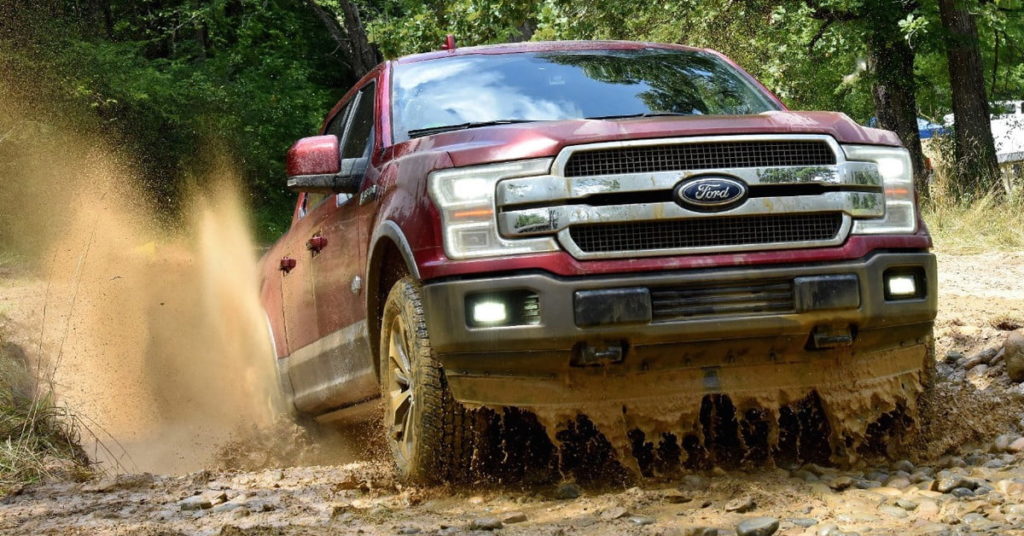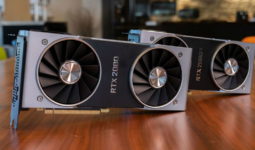The Best Trucks of 2018
 Sometimes, a regular sedan simply won’t do. If you have a lot of stuff to haul around, you need a pickup truck, and there are plenty of choices. Over the years, trucks have evolved from simple work vehicles to cushy conveyances that can scrape $100,000 when fully loaded with optional extras. It’s no wonder so many people are using trucks as everyday passenger vehicles.
Sometimes, a regular sedan simply won’t do. If you have a lot of stuff to haul around, you need a pickup truck, and there are plenty of choices. Over the years, trucks have evolved from simple work vehicles to cushy conveyances that can scrape $100,000 when fully loaded with optional extras. It’s no wonder so many people are using trucks as everyday passenger vehicles.
The pickup truck segment is one of the most competitive in the auto industry, with some of the most demanding customers. That drives automakers to design higher-quality products, and we’ve rounded up the best trucks from a variety of disciplines here.
At a glance
Ford F-150
The best
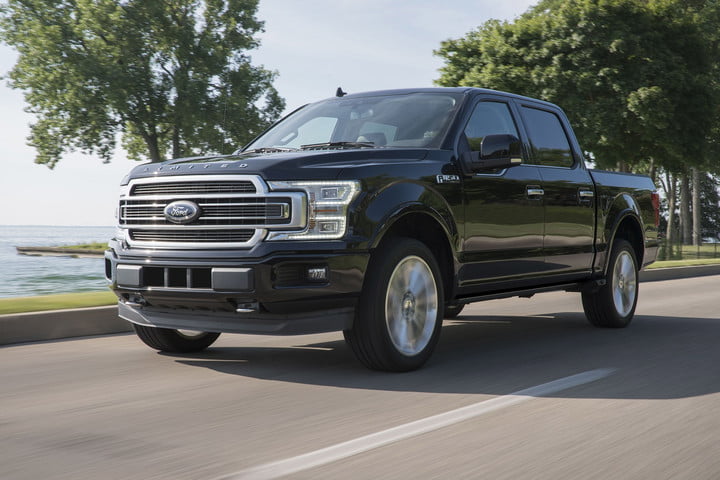
Why should you buy this: It does everything well.
Who’s it for: Just about anyone who needs a full-size pickup truck.
How much will it cost: $28,155+
Why we picked the Ford F-150:
Because it has the fundamentals down.
The Ford F-150 has been the best-selling vehicle in the U.S. for decades, and it’s easy to see why legions of truck buyers flock to it every year. The F-150 doesn’t dominate any particular category, but it covers all of the bases with solid performance, impressive refinement, and stylish and thoughtful design features.
Under the hood, the available 3.5-liter twin-turbocharged EcoBoost V6 (available in 375 horsepower and 450-hp strengths) offers plenty of torque and very quick throttle response, making it a good choice whether you want to tow a boat or just pull away from the lights in a hurry. Ford also offers a more traditional 5.0-liter V8, a turbodiesel engine, and two other gasoline V6 options. The truck itself features an aluminum body that Ford claims saves over 700 pounds compared to a conventional steel body. While the F-150 has fairly basic suspension, the ride is impressively smooth and comfortable. The styling is also a nice departure from traditional truck boxiness.
Ford has also taken the lead in adding tech features to trucks. The F-150 is available with the same Sync 3 infotainment system available in most of Ford’s car models. It’s a solid system with a fairly straightforward menu and a responsive touchscreen display. The layout of the dashboard makes it easy to use both the screen and analog controls. Other notable tech toys include a surround-view camera system and Pro Trailer Backup Assist, which allows the truck to take over steering when backing up a trailer. Even if you don’t opt for these features, the F-150’s ride quality, power, and design should prove satisfying.
GMC Sierra 1500 Denali
The best luxury truck
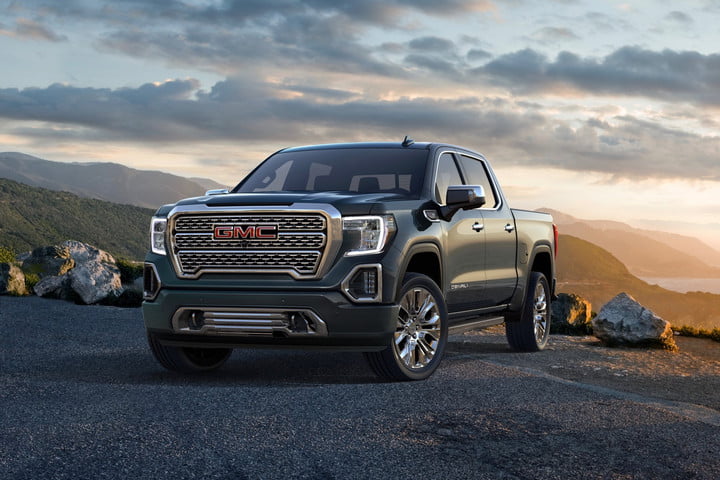
Why should you buy this: It proves that trucks can be luxurious.
Who’s it for: Rich contractors.
How much will it cost: $54,700+
Why we picked the GMC Sierra 1500 Denali:
At this point, most manufacturers are adding wood leather trim to their pickup trucks to create luxury models, but the product generally doesn’t live up to the “luxury” branding, or the inflated price tags most of these models carry. That’s not the case with the GMC Sierra 1500 Denali, which offers buyers more than just the garnish of luxury. GMC’s designers continue to take a more tasteful approach than their counterparts at other truck makers, giving Denali models a true upscale feel.
The entire Sierra lineup was redesigned for the 2019 model year, incorporating numerous updates and further distancing the Sierra from its sibling, the Chevrolet Silverado. One thing you can’t get on the Chevy is the CarbonPro carbon fiber pickup box, which GMC claims is 62 pounds lighter than a standard steel box. The Sierra also gets GMC’s MultiPro tailgate. Instead of simply opening or closing, it can be reconfigured to open halfway for longer items, among other things. The Denali is available with 5.3-liter or 6.2-liter V8 gasoline engines, with a 3.0-liter turbodiesel V6 on the way.
GMC also loaded the Denali with tech, including standard adaptive suspension and the 8.0-inch touchscreen infotainment system that’s optional on lower trim levels. GMC also added an app to assist drivers with towing trailers and the rear-camera mirror previously seen on the Cadillac CT6 and Chevrolet Bolt EV to the Sierra options list for 2019.
Ram 1500 Rebel
The best off-roader

Why should you buy this: If you’re serious about off-roading, the Ram 1500 Rebel has everything you need to hit the trail.
Who’s it for: People who aren’t afraid to get a little dirty.
How much will it cost: $44,095+
Why we picked the Ram 1500 Rebel:
Lots of people talk about taking their pickup trucks off the road, but the Ram 1500 Rebel is built for the small portion of pickup owners who actually do it. All new for the latest model year, the Rebel has more than a four-wheel drive system and some mud flaps. It rides on massive 33.0-inch Goodyear Wrangler DuraTrac tires, features skid plates to protect its underside, and has an electronic-locking rear differential to help maximize traction.
The suspension system is based on the air-ride setup offered in other Ram models, but beefed up with model-specific Bilstein shock absorbers to handle surfaces that are less than smooth. The Rebel also rides 1 inch higher than the standard Ram 1500, providing a little more clearance for obstacles. The Rebel offers the most comprehensive off-road package of any full-size truck, although Ford’s F-150 Raptor gives it a run for its money, especially in the performance department.
The Ram 1500 that the Rebel is based on is also a pretty solid foundation. It provides two good engine options — the 5.7-liter Hemi V8 and 3.6-liter V6 with a mild hybrid system named eTorque — to the Rebel cause, as well as an ergonomic interior with an available 12.0-inch touchscreen on the dashboard, plus handy Ram Box storage boxes built into the sides of the bed.
Honda Ridgeline
The best truck for people who don’t like trucks
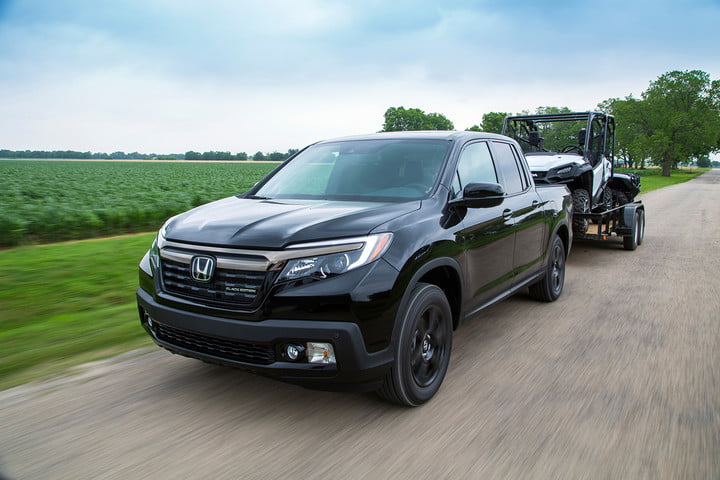
Why should you buy this: Because it drives like a car.
Who’s it for: People who need a truck, but don’t want one.
How much will it cost: $29,990+
Why we picked the Honda Ridgeline:
The Ridgeline is different from most other trucks on the market. It’s basically a Honda Pilot crossover with a pickup bed, so it uses car-like unibody construction instead of the body-on-frame construction of most trucks. That means the body is more rigid, which makes for better ride quality, with less shuddering and vibration. It’s also a little bit easier to drive and park.
The Ridgeline also features car-like suspension, so it handles better on pavement, where drivers spend most of their time. Also aiding on-road handling is the same all-wheel drive system used on the Pilot, which includes Honda’s i-VTM4 torque-vectoring feature. This shunts torque side to side, which helps turn the Ridgeline in corners. This setup does sacrifice off-road ability, but it’s a good fit for drivers coming from cars or crossovers.
Most trucks are short on secure storage space, but the Ridgeline features a lockable in-bed trunk for items too valuable to leave exposed in the bed itself. The tailgate can also open either down or sideways, for added flexibility when loading and unloading. Honda even offers an in-bed audio system which, should be a hit at tailgate parties.
Chevrolet Colorado Diesel
The best fuel-efficient truck

Why should you buy this: It’s the most fuel-efficient truck you can buy.
Who’s it for: People who hate the gas station.
How much will it cost: $36,480+
Why we picked the Chevrolet Colorado Diesel:
Diesel may be getting a bad rap in the wake of the Volkswagen emissions scandal, but when automakers don’t cheat, it still makes a lot of sense in new vehicles. That’s the case with trucks, both because diesel engines’ torque is good for towing, and because there are no real hybrid or electric alternatives in this segment for buyers looking for low fuel costs and emissions.
The Chevrolet Colorado Diesel (along with its GMC Canyon twin) offers a great balance between fuel efficiency and capability, scoring an EPA-rated 23 mpg combined in basic rear-wheel drive form, and 22 mpg combined with the optional four-wheel drive system. The 2.8-liter Duramax four-cylinder engine also punches above its weight with 369 pound-feet torque, a figure matched only by much larger — and thirstier — gasoline engines.
If you buy a Colorado, you’re not just buying an engine, though. The Colorado is a good truck in every respect. Its midsize dimensions make it much easier to maneuver and park than full-size trucks. The steering response and the way the suspension controls body motion on the road are borderline car-like, and you can get Apple CarPlay, Android Auto, and a built-in Wi-Fi hotspot.
Ford F-150 Raptor
The best performance truck
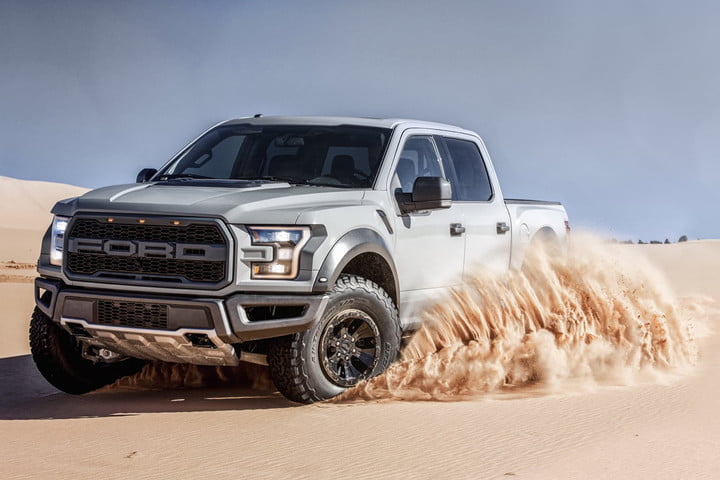
Why should you buy this: Production pickups don’t get any cooler than this.
Who’s it for: Performance lovers who don’t want to be contained by paved roads.
How much will it cost: $52,855+
Why we picked the Ford F-150 Raptor:
Ford broke the sport truck mold when it introduced the SVT Raptor in 2009, and though other performance trucks have since entered the market, the Raptor remains the king of all-purpose trucking.
The second-generation Raptor brings enhancements to the powertrain, suspension, exterior design, and interior. A 3.5-liter twin-turbocharged V6 replaces the outgoing V8, improving output from 411 to 450 hp (with 510 lb-ft of torque). The suspension pairs upgraded Fox Racing shocks with tuned springs and hefty aluminum control arms. 35-inch BF Goodrich All-Terrain tires pair with a new four-wheel drive transfer case to permit the Raptor generous off-road capability.
The all-new Raptor looks mean, is insanely fast, scampers just about anywhere off-road, and cushions its passengers from even the roughest terrain. If there’s a downside to all this entertainment (apart from its lofty price tag), we certainly can’t find it.
Toyota Tundra
The most reliable truck
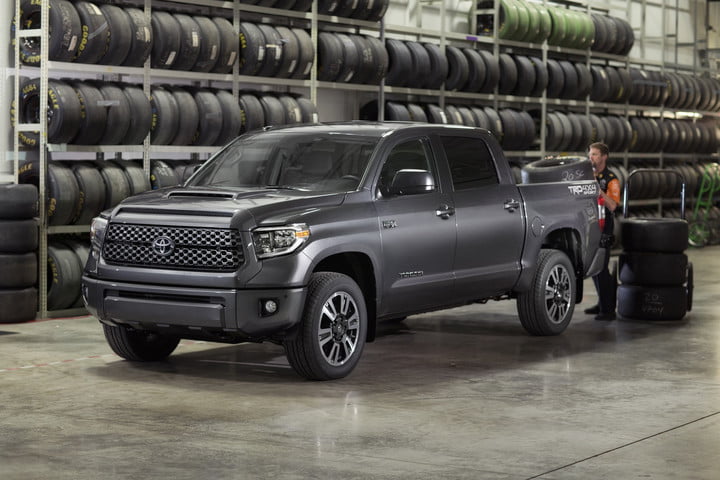
Why should you buy this: It will keep on going when everything else quits.
Who’s it for: Doomsday preppers.
How much will it cost: $31,420+
Why we picked the Toyota Tundra:
Toyotas have a well-deserved reputation for reliability and, as famously demonstrated on Top Gear, the Japanese automaker’s trucks have proven particularly bulletproof. That’s still the case with the Tundra, Toyota’s take on the American-as-apple-pie full-size pickup.
Many automakers say their trucks are tough, but Toyota has some pretty compelling evidence to prove it. In 2016, Toyota bought back a 2007 Tundra from a customer who had driven it one million miles. The truck still had its original engine, transmission, and paint job.
Like its counterparts from Ford, General Motors, and Ram, the Tundra is available in a wide variety of cab, bed, and trim level configurations to suit buyer needs. From the base SR to the luxurious 1794 Edition, Toyota has all of the bases covered. Toyota also offers buyers two V8 engine options — a 4.6-liter unit that develops 310 hp and 327 lb-ft, and a 5.7-liter engine with 381 hp and 401 lb-ft. Maximum towing capacity is 10,200 pounds when properly equipped.
The Tundra also gets the same standard Toyota Safety Sense-P suite of safety equipment as other Toyota models, bundling a pre-collision system with autonomous emergency braking, lane departure alert, adaptive cruise control, and automatic high beams. On the infotainment front, Toyota offers a 7.0-inch touchscreen display with navigation and its Entune app suite.
How we test
The Digital Trends automotive team tests vehicles through a comprehensive scrutinizing process. We examine the qualities of the exterior and interior and judge them based on our expertise and experience in the context of the vehicle’s category and price range. Entertainment technology is thoroughly tested as well as most safety features that can be tested in controlled environments.
Test drivers spend extensive time behind the wheel of the vehicles, conducting real-world testing, driving them on highways, back roads, as well as off-road and race tracks when applicable.
Pickup truck size categories explained
Like other types of vehicles, pickup trucks come in multiple sizes. But the size categories often used by automakers don’t always provide the whole picture. Here’s a quick cheat sheet.
Midsize: Midsize pickup trucks are actually the smallest trucks you can buy new in the U.S. right now. Smaller trucks (often described as “compacts”) vanished from our shores years ago, although they are still available in other countries. Examples of midsize trucks include the Toyota Tacoma, Nissan Frontier, Honda Ridgeline, and Chevy Colorado/GMC Canyon twins.
Full-size/half ton: This is the most common type of truck on the road, encompassing best-sellers like the Ford F-150, Chevy Silverado 1500/GMC Sierra 1500 twins, and the Ram 1500. These trucks are sometimes referred to as “half tons,” which used to apply to payload ratings for this class of truck, but is now a completely irrelevant term. The term “full size” comes from the fact that these are the largest trucks classified as “light duty vehicles” by the EPA, meaning they’re governed by the same fuel-economy rules as cars.
Heavy duty/three-quarter ton/one ton: Full-size trucks aren’t the biggest trucks you can buy, though. Heavy-duty trucks like the Ford F-Series Super Duty, Chevy Silverado/GMC Sierra 2500 and 3500, and Ram 2500 and 3500 are so big that they exceed EPA weight ratings for passenger vehicles. Many owners still use these trucks as daily drivers, although only buyers who spend a lot of time towing and hauling really need them. The “three-quarter ton” and “one ton” names come from the same outdated rating system as the “half ton” designation for full-size trucks.
